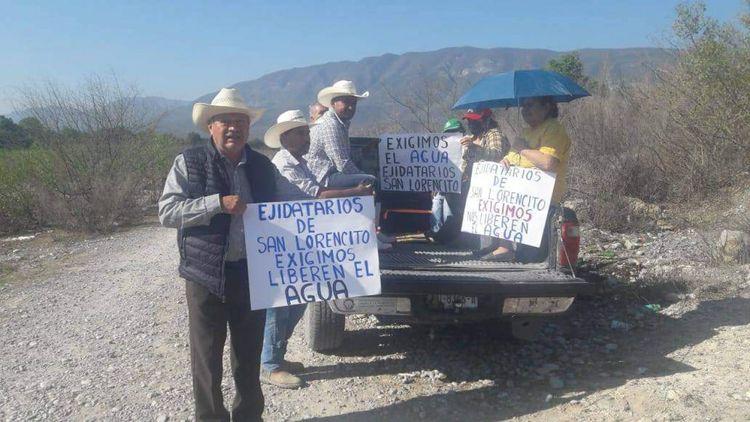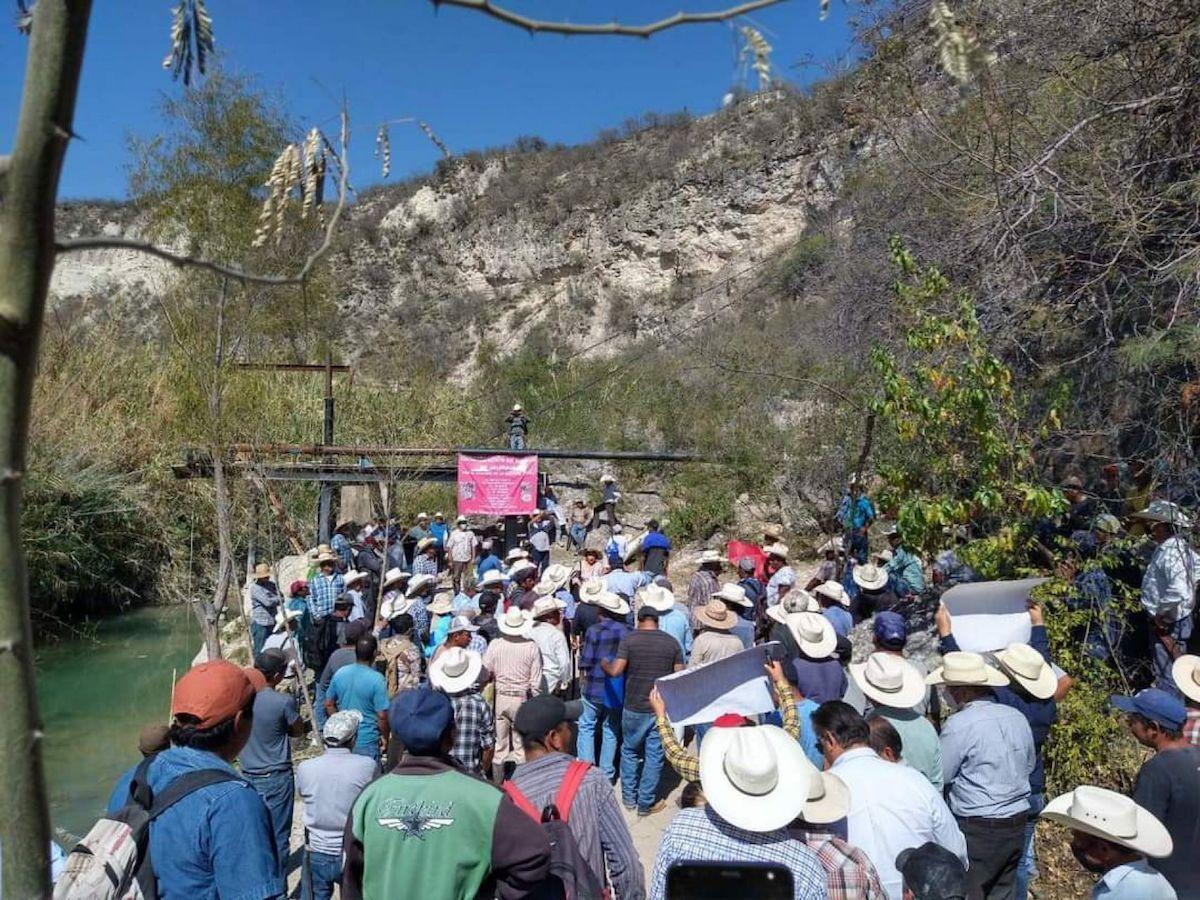Residents and ejidatarios in Jaumave, Tamaulipas, ask the National Water Commission (Conagua) to review and renew concessions granted in the Charco Azul area of the Guayalejo River, a pending issue that has also led to the emergence of a group of self-defense groups.
The lack of management by the authorities has resulted in increased droughts that make planting and livelihood impossible in communities such as José María Morelos, San Lorencito, Gustavo Cázares, Padrón y Juárez, El Ingenio and Matías García.
At the beginning of the year, residents of the municipality of Jaumave and six ejidos organized a self-defense group to protect the canal from lemon producers in nearby ejidos, who were accused of planting pumps to extract water from the riverbed illegally.
So armed with machetes, they coordinated to monitor the area.
This action attracted the attention of media and state authorities, however, the ejidatarios of the six communities that make up the self-defense group point out that since 2011 concessions have been granted without calculating the availability of water. So they demand that there be a review.
“As affected are six ejidos and 52 small landlords, approximately 2,500 people. So it would be highly desirable for Conagua to solve these age-old problems,” said Pedro César Luna Reyes, president of the Guayalejo Common Channel Users Association, during the last demonstration by ejidatarios in late August.
Among the concession holders hoarding the water, Luna Reyes pointed to the Valdez family, owner of the Exportadora de Frutas y Legumbres Tres Ases S.A. de C.V.
During that demonstration, Luna Reyes also stated that the scarcity of water generates disagreements between the same ejidatarios of Juamave and Padrón y Juárez.
“The volume of water brought in by the river is very small, it brings 200 liters per second. We have a concession of 780 liters per second, Padron and Juárez of 92 liters per second, but they carry more water than is appropriate, so it hurts us, but we know that it is not a direct problem (with the ejido),” added the president. 
Ejidatarios from San Lorencito, one of the affected communities. Photo: Courtesy “Let's Fight for Water” /Cuartoscuro.com
Waiting for waterThe recent rainy season has served to compensate for the lack of water. Therefore, self-defense groups and residents of the affected communities have partially stopped their demonstrations and demonstrations, according to Saúl Acosta, an engineer from the municipality of Jaumave.
“For as long as we can remember, Jaumave has had a lot of droughts and several communities drink water from the river, it's the natural recharge of the mountains... But it hasn't been reviewed,” he said.
In December, Acosta and two other colleagues organized a dialogue between Conagua and the ejidatarios. This action, as well as the mobilizations, led to inspections by the organization.
The answer was that it was necessary to review the concessions of all the ejidatarios in the area.
So far, Conagua has not responded to the review and renewal of the concessions, but Matías García's ejidatarios indicated that documents were already delivered in mid-September.
Journalism CN contacted the Commission to corroborate this information, but as of the date of publication of this article, there is still no response.
Meanwhile, in ejidos such as Matías García or Los Nogales, they survive the drought by buying water and asking for pipes. The lack of income has increased due to the impossibility of planting bananas or avocados, which was previously a job for farmers and ejidatarios.
According to Acosta, the change of governor of Tamaulipas after the June 5 elections is also a factor that has stopped the possibility of an agreement at the state level.
“The bad thing is that (due to the drought situation) many people are getting used to not having water... They have had to sow temporarily, when before their land was irrigated and they harvested a couple of times a year,” he described.



Comentarios (0)